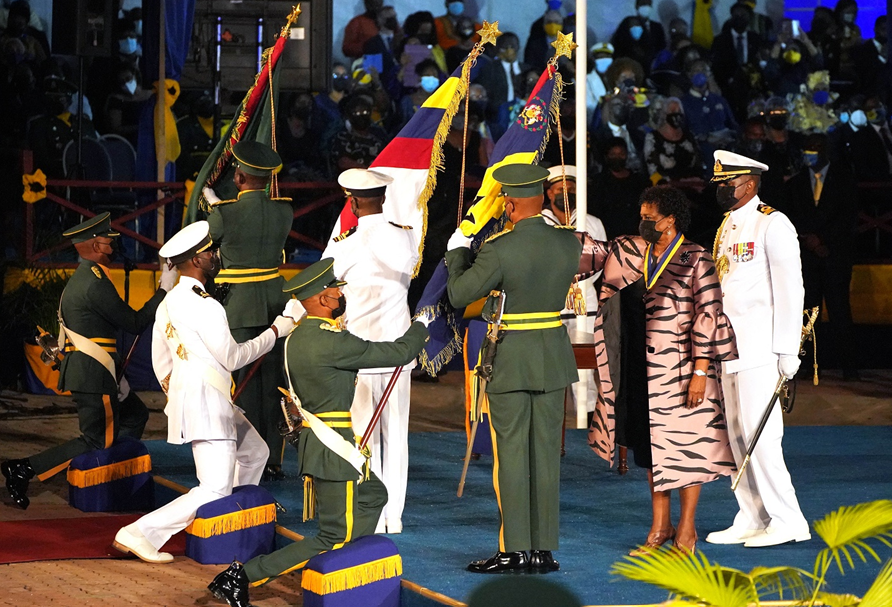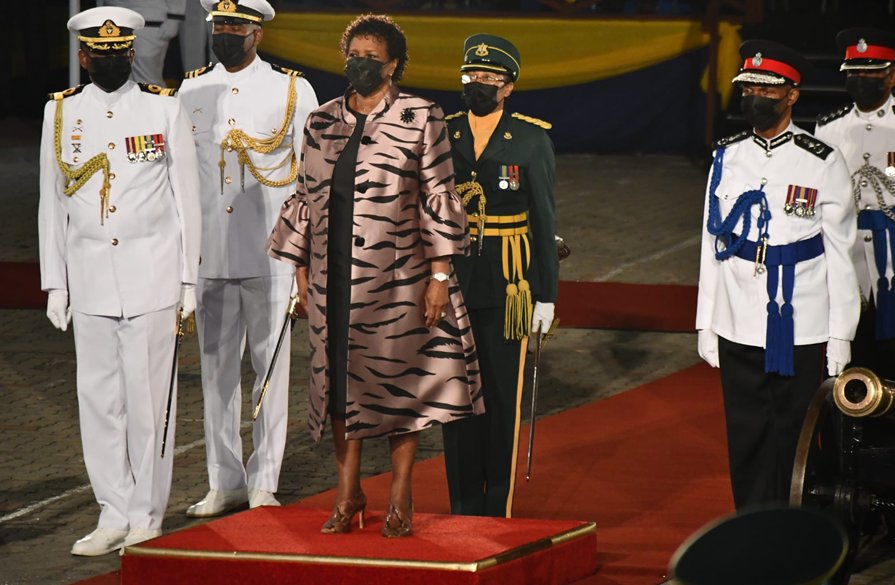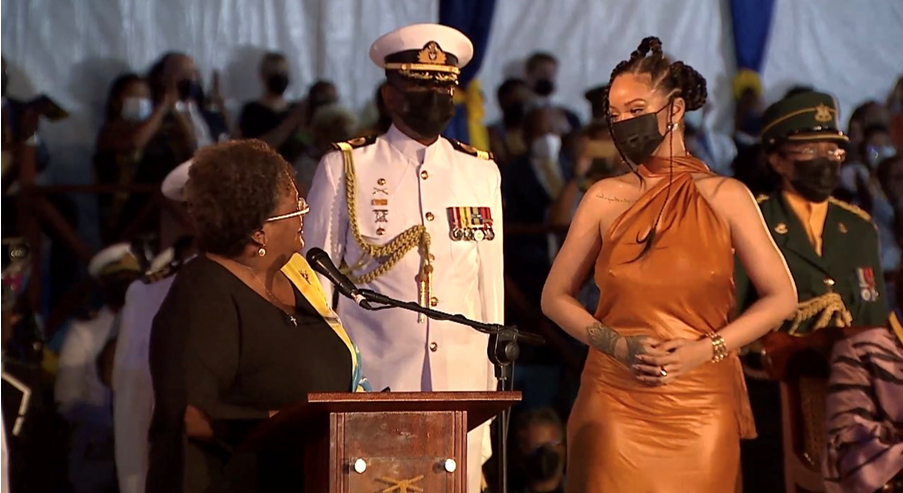
Barbados, a former British colony, has officially ditched Queen Elizabeth as head of state, breaking its last remaining imperial bonds with Britain nearly 400 years since the first English ship arrived at the Caribbean Island.
Barbados casts the removal of Elizabeth II, who is queen of Barbados and 15 other realms including the United Kingdom, Australia, Canada and Jamaica, as a sign of confidence and a way to finally break with the demons of its colonial history.
The birth of the republic, 55 years to the day since Barbados declared independence, finally unclasps almost all the colonial bonds that have kept the tiny island in the Lesser Antilles tied to England since an English ship claimed it for King James I in 1625.
It may also be a harbinger of a broader attempt by other former colonies to cut ties to the British monarchy as it braces for the end of Elizabeth’s nearly 70-year-old reign and the future accession of Charles, who will attend the republican celebrations in Bridgetown.
Barbados’s move is the first time a realm has removed the queen as head of state in nearly 30 years: Mauritius, an island in the Indian Ocean, proclaimed itself a republic but remained in the Commonwealth, an association of mostly former British colonies which is home to 2.5 billion people.
Buckingham Palace says the issue is a matter for the people of Barbados.

SUGAR AND SLAVES
Originally populated by waves of Saladoid-Barrancoid and Kalinago migrants, Spanish slaver raids forced Amerindians to flee. Barbados was unpopulated when the English first arrived.
The English initially used white British indentured servants to toil on the plantations of tobacco, cotton, indigo and sugar, but Barbados in just a few decades would become England’s first truly profitable slave society.
Barbados received 600,000 enslaved Africans between 1627 and 1833, who were put to work in the sugar plantations, earning fortunes for the English owners.
More than 10 million Africans were shackled into the Atlantic slave trade by European nations between the 15th and 19th centuries. Those who survived the often brutal voyage, ended up toiling on plantations.
While full freedom was finally granted in 1838, the plantation owners preserved considerable economic and political power might into the 20th Century. The island gained full independence in 1966.

Barbados will remain a republic within the Commonwealth, a grouping of 54 countries across Africa, Asia, the Americas, Europe and the Pacific that has always been a priority for Elizabeth, who heads it.
Though its name will remain simply Barbados, its removal of the queen may well sow the seeds of republicanism further across the Caribbean, according to Drayton.
“The time has come to fully leave our colonial past behind,” Prime Minister Mia Mottley said in a 2020 speech prepared for Governor General Sandra Mason, who will replace Elizabeth as Barbados’ head of state after being elected president.
“This is the ultimate statement of confidence in who we are and what we are capable of achieving.”